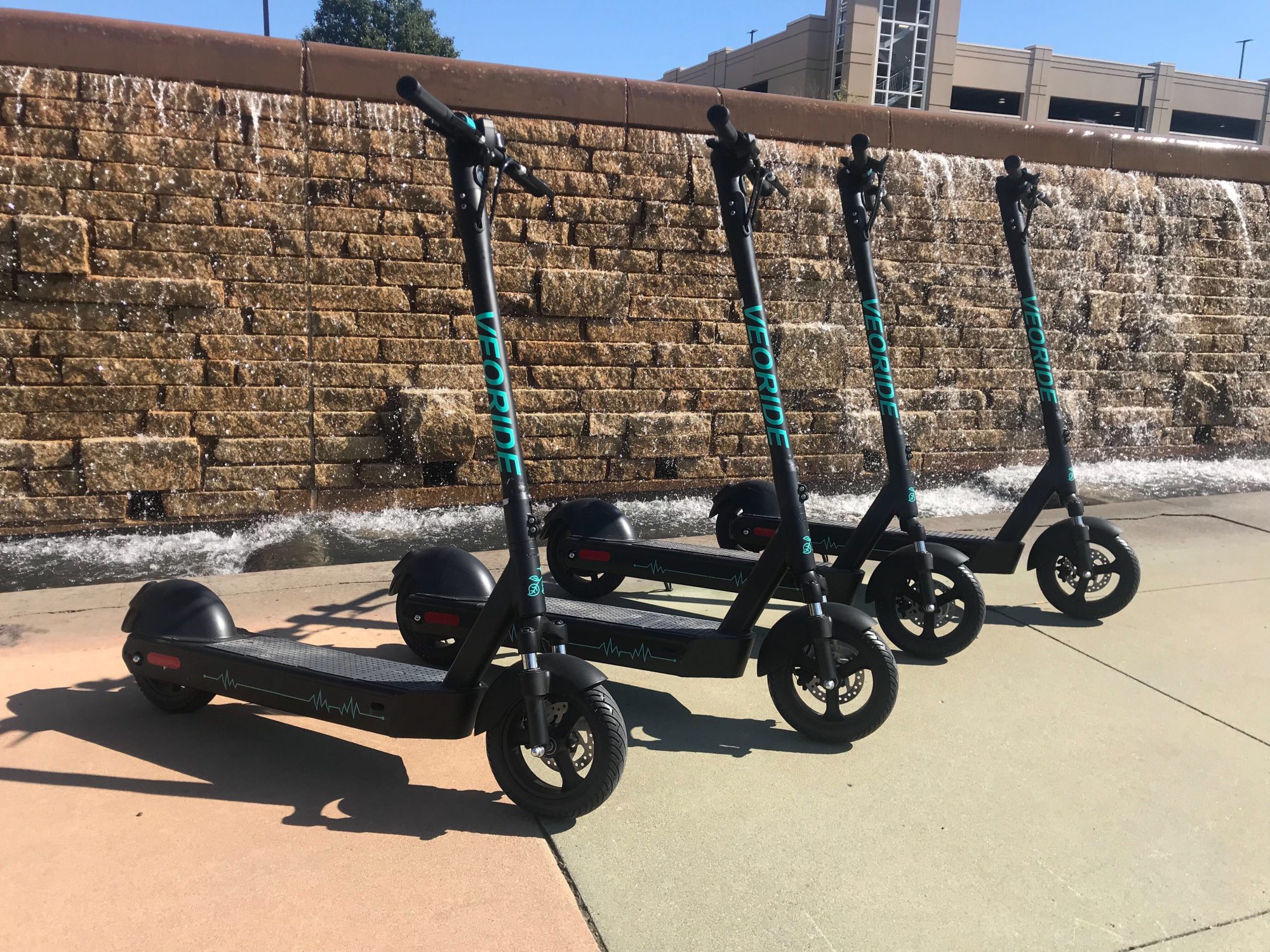College Park, in partnership with VeoRide, is rolling out scooters and electric bikes available for ride-sharing in time for the first week of classes.
The Chicago-based company brought 70 scooters, 150 electrically-assisted bikes and 70 pedal bikes to University Park and College Park and this university as part of a yearlong pilot program.
The devices made their College Park debut on Aug. 15 exclusively for school officials to test the new rides. But by Aug. 28, the VeoRide fleet will be accessible to all users from the company’s app.
“Our whole purpose, and kind of what we see as our concrete vision is to help move people around more quickly and more efficiently, and that’s what I think we’re going to be able to do here in the College Park area,” said Matt Briggs, VeoRide’s general manager for the region.
During the initial launch, all vehicles will be available from 5 a.m. to 9 p.m., Briggs said.
College Park Mayor Patrick Wojahn said the time restriction allows for the electric scooter and bike batteries to be charged overnight and also mitigates some safety hazards.
“In terms of using the scooters late at night, you might not be paying as much attention,” Wojahn said. “We were concerned that people would be using them after going out drinking to get home so [we worked] with VeoRide to limit the use at night.”
The devices cost $1 to unlock, plus a fee: 15 cents per minute for electric bikes and scooters and five cents per minute for pedal bikes.
The company set the scooters’ speed limit at 15 miles per hour in the city, according to city council documents.
Nikki Emamian, a freshman biology major, said the scooters could provide an easy way for students to get to classes.
“It’s like having a bike but without as much responsibility,” Emamian said.
Freshman Sayaka Shanbhag, who lives on North Campus but has most of her classes on South Campus, also thought it was “a pretty good idea.”
“It’s a pretty far walk,” said Shanbhag, an international business major. “I wanted some kind of transportation like that.”
The scooters, which can travel up to 15 miles per hour in College Park, feature a battery compartment, according to College Park City Council documents. The electric-assist bike can reach 18 miles per hour on flat terrain.
With limited parking spaces on campus, VeoRide could offer a quick and car-free way to get around this campus, Briggs said.
“There’s a very high density of living area, parking is kind of sparse in my handful of occasions that I’ve had a chance to be here, so we think we can help with it,” Briggs said.
Unlike Zagster’s mBike, which ended operations earlier this month, VeoRide devices are battery-powered and dockless. Bikes can be parked at any bike rack and scooters can be parked in “scooter boxes,” which are location-based parking areas.
“We’re not only providing what we were with the Zagster program, but we’re also providing additional options with the e-bikes and the scooters,” Wojahn said.
As micro-mobility devices are gaining in popularity, Briggs said that VeoRide’s design stands out.
“We control our entire design and manufacturing process, so we’re able to build vehicles specifically for this industry,” he said. “Our scooters aren’t something that you can just go on Amazon and buy one of your own.”
Local fleet technicians will maintain and charge the vehicles, which Briggs said will add jobs to the city. Students account for a significant portion of workers in VeoRide’s college markets, he said.
Though VeoRide has worked with other large university communities in the past, including Texas A&M University and the University of Illinois Urbana-Champaign, Briggs said College Park is the first to unveil three devices at once.
Staff writer Eric Neugeboren contributed to this report.
CORRECTION: Due to an error, a previous version of this story incorrectly stated the VeoRide scooters and bikes would be available for the first day of class. They were made available Wednesday, Aug. 28.



